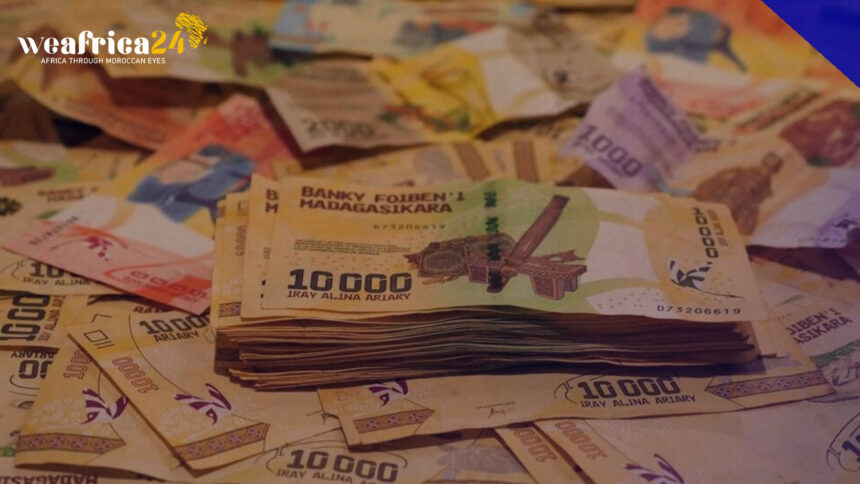Since early November 2023, Madagascar has witnessed a significant depreciation of the ariary against the euro. On the interbank foreign exchange market, one euro now exchanges for 4,984 ariary, nearing the critical threshold of 5,000 ariary, compared to 4,650 ariary at the same time last year. This surge is causing concern among the population, already impacted by the current inflation rate of 12%.
Multiple factors contribute to such depreciation, including the persistent imbalance in Madagascar’s trade balance. This phenomenon is exacerbated during the year-end holidays, as explained by David Rakoto, an economics professor at the University of Antananarivo.
“There are more imports than exports than usual during these holidays. To acquire foreign goods, you need to obtain them with foreign currencies. Therefore, the demand for euros has increased compared to the supply of currencies on the interbank foreign exchange market,” he explains.
Lack of Foreign Currency
Exports of vanilla and lychees, below the usual volumes, have not been sufficient to offset the lack of foreign currency. As a result, “In Madagascar, we have never reached such a low exchange rate since 1980 and the establishment of the interbank foreign exchange market. While this situation may benefit some, such as exporters, for the majority of Malagasy people, the immediate effect is inflation. This is why we have reached a very high inflation rate of 12%,” adds David Rakoto.
However, the Governor of the Central Bank of Madagascar, Aivo Andrianarivelo, seeks to downplay the situation: “There is always what we call the psychological impact of an exchange rate. And the psychological impact on the population is the variation of the euro, more than the dollar. We, at the Central Bank, only manage the dollar/ariary exchange rate. The depreciation of the ariary against the dollar is minimal: there is no need to worry on that side because it remains stable.”
In the country, nearly 60% of transaction volume occurs in dollars, compared to 40% in euros. While the governor sees the situation as far from dire, the continued depreciation of the dollar on the international market, as is the current trend, could worsen the situation for Madagascar in the coming months.







